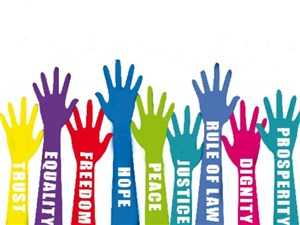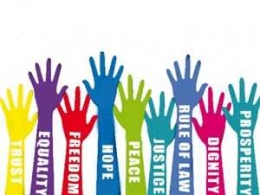Fanny S Alam
Coordinator of Bhinneka Nusantara Foundation Region Bandung
Frequently, the term of Human Rights seems familiar among Indonesian societies. It could be understood when most of them are not attentive enough to respond human rights issues as well as their accomplishment.
Despite the reluctance, Indonesia's human rights accomplishment used to be addressed in the introductory speech of indonesia's human rights report by the state's ministry of foreign affairs, Retno Marsudi in cycle 3 Universal Periodic Review in United Nations in Geneva, on 3 May 2017.
It confirms Indonesia's ratifications of United Nations Human Rights instruments and some partnership settlements between inter-human rights institutions and civils as well as inter-region economy gap reductions among different society classes.
The Indonesia's human rights accomplishment obviously brings into a debate when viewing the exact implementations in reality.
Some contradictories arise regarding a death sentence penetration among some crime questioned by almost 93 countries, intolerant and discrimnating practices towards minorities groups of religions and ethnics as well as other groups in ethnics, races, and sexual orientations, and widespread social gaps leading to questionable human rights issues handlings by the state.
All seemingly negates every conducted efforts and deters the spirit of the human rights day commemoration along the period of November to December. Paradox about it proliferates causing silent hurdles towards human rights issues brush off in Indonesia.
What is wrong with the implementation of human rights in Indonesia? A series of legislature regulations for them have been resilient, amendable to be conducted, some are reflecting the ratifications of United Nations convenants, particularly in terms of people's rights to live, to express their opinions, to gain education and teaching, to be in life independence, to own their beliefs, to be well protected in the state's established laws.
All of their violations are excised certain sanctions strictly, while in reality those sanctions implicitly acquire slender respects due to the absence of human rights perspectives towards law enforcement apparatus, predominantly in lower levels.
Therefore, the situation presents a divergence with less turnaround for the issue solutions. Difficult to resist, yet expectation to the state's attentiveness for human rights issues handling is on the verge with the direct implementations to provinces in which, contradictively, the tendency of their regional laws profoundly reveals legalized practices of intolerance and discrimination to the minority groups mentioned above. Has the state examined this thoroughly?







